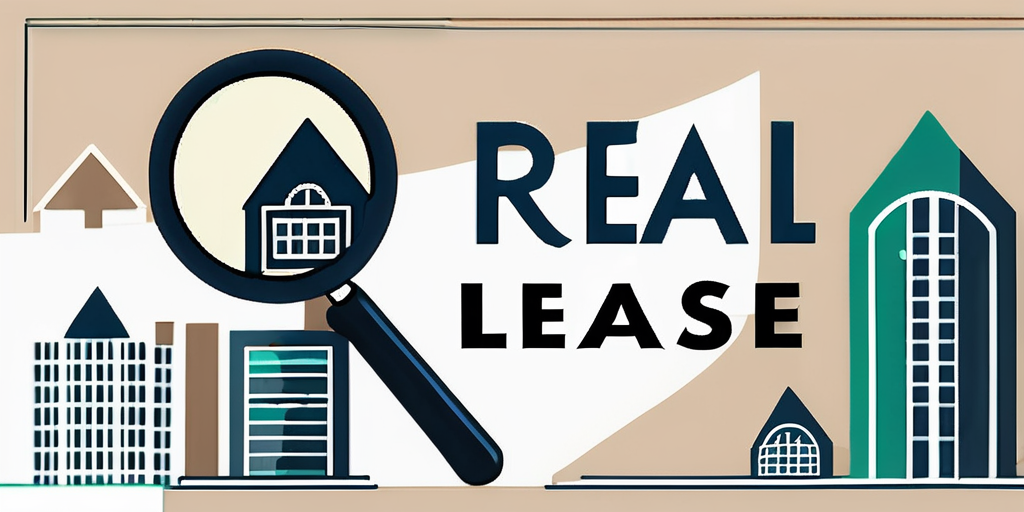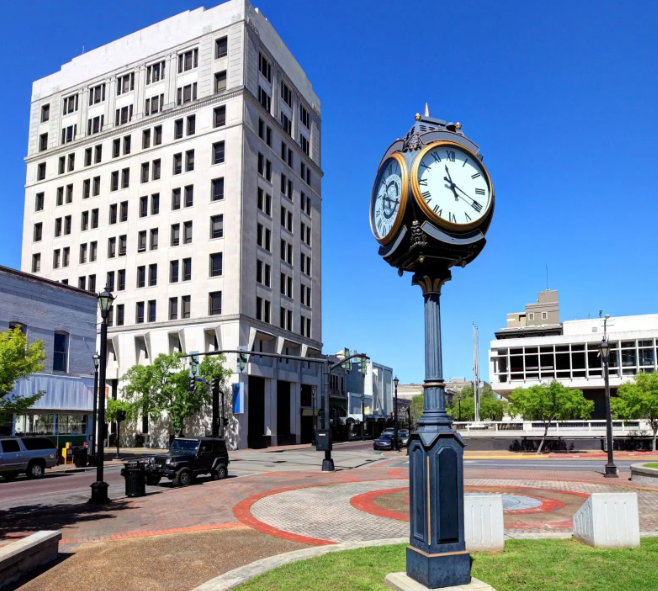Commercial brokerage plays a vital role in the real estate industry, and finding the best brokerage firm for your needs is crucial for success in Louisiana’s thriving commercial market. Whether you are buying, selling, or leasing commercial properties, a knowledgeable and reputable brokerage can make all the difference. In this comprehensive guide, we will explore the various aspects of commercial brokerage in Louisiana, including the role of a commercial broker, key terms in the industry, criteria for choosing the best brokerage, services offered, and the process of working with a commercial broker.
Understanding Commercial Brokerage
In order to make informed decisions when it comes to commercial real estate transactions, it is essential to have a basic understanding of commercial brokerage. At its core, commercial brokerage involves acting as an intermediary between buyers, sellers, landlords, and tenants in commercial property transactions. A commercial broker is an expert in the local market, possessing in-depth knowledge of property values, market trends, and legal considerations.

The Role of a Commercial Broker
A commercial broker serves as a trusted advisor, guiding clients through the complex process of buying, selling, or leasing commercial properties. They assist with market research, property valuation, marketing, negotiations, and ultimately, closing the deal. Their expertise and network of connections ensure that clients have access to the best opportunities and receive fair and favorable terms.
One important aspect of a commercial broker’s role is market research. They analyze data on property sales, lease rates, and market trends to provide clients with valuable insights. This research helps clients make informed decisions and identify opportunities that align with their investment goals.
In addition to market research, commercial brokers also play a crucial role in property valuation. They assess the value of commercial properties based on factors such as location, condition, and potential for income generation. This valuation helps clients determine a fair asking price or offer, ensuring that they are getting the best value for their investment.
Key Terms in Commercial Brokerage
As with any specialized field, commercial brokerage has its own set of key terms and concepts that are important to understand. These terms include cap rate, cash flow analysis, gross lease, net lease, tenant improvement allowance, and many others. Familiarizing yourself with these terms will help you navigate the commercial real estate market with confidence.
Let’s take a closer look at one of these key terms: cap rate. The capitalization rate, or cap rate, is a measure used to determine the potential return on investment for a commercial property. It is calculated by dividing the property’s net operating income by its purchase price. A higher cap rate indicates a higher potential return, while a lower cap rate suggests a lower return.
Understanding cap rate is essential when evaluating investment opportunities in commercial real estate. It allows investors to compare different properties and assess their potential profitability. By considering the cap rate along with other factors such as location, market conditions, and property condition, investors can make informed decisions that align with their investment goals.
Criteria for Choosing the Best Commercial Brokerage
When selecting a commercial brokerage firm in Louisiana, there are several factors to consider. Here are some key criteria that can help you identify the best brokerage for your needs:

Experience and Expertise
One of the most important factors to consider is the brokerage’s experience and expertise in the commercial real estate industry. Look for a firm with a proven track record of successful transactions and a team of seasoned professionals who specialize in commercial brokerage.
For example, a brokerage with extensive experience in negotiating lease agreements for office spaces can provide valuable insights and guidance when it comes to finding the perfect location for your business. Their expertise in understanding market trends and lease terms can help you secure the most favorable terms and conditions.
Local Market Knowledge
Commercial real estate markets can vary significantly from one locality to another. It is crucial to choose a brokerage that has a deep understanding of the local market dynamics, including property values, zoning regulations, and economic trends. This knowledge will give you a competitive edge and increase the likelihood of finding the best opportunities.
For instance, a brokerage that has been operating in Louisiana for many years will have a comprehensive understanding of the state’s unique market conditions. They will be familiar with local zoning laws, which can be complex and vary from one parish to another. This knowledge can save you time and effort by ensuring that your property search aligns with your specific requirements and avoids any potential legal pitfalls.
Client Reviews and Reputation
Client reviews and reputation are essential indicators of a brokerage’s performance and service quality. Take the time to research customer testimonials, online reviews, and industry rankings to gauge the brokerage’s reputation in the market. Positive feedback and satisfied clients are strong signs of a reliable and trustworthy firm.
Furthermore, a brokerage with a strong reputation often has established relationships with other industry professionals, such as lenders, appraisers, and property managers. These connections can be invaluable when it comes to streamlining the buying or selling process and ensuring a smooth transaction.
By considering these criteria, you can make an informed decision when choosing the best commercial brokerage in Louisiana. Remember, finding the right brokerage is crucial for maximizing your investment potential and achieving your commercial real estate goals.
Services Offered by Top Commercial Brokerages
Top commercial brokerages offer a wide range of services to meet the diverse needs of their clients. These services can include:
Property Sales and Leasing
Commercial brokerages help buyers and sellers navigate the process of purchasing or selling commercial properties. They employ effective marketing strategies, conduct property inspections, and handle negotiations to ensure a successful transaction.
Investment Consulting
For clients looking to invest in commercial real estate, top brokerages provide investment consulting services. They offer expert advice on market trends, property analysis, and risk assessment to help clients make informed investment decisions.
Property Management Services
Many commercial brokerages also offer property management services, which can be highly valuable for property owners. These services include tenant screening, rent collection, maintenance coordination, and financial reporting. By entrusting the management of their properties to professionals, owners can focus on other aspects of their business.
However, the services provided by top commercial brokerages go beyond just property sales, leasing, investment consulting, and property management. These brokerages understand that their clients have unique needs and require comprehensive solutions. That’s why they offer additional services to ensure their clients’ success in the commercial real estate market.
One such service is market research and analysis. Top brokerages have dedicated teams that conduct in-depth research on local and national commercial real estate markets. They analyze market trends, vacancy rates, rental rates, and other factors that can impact property values. This information is crucial for clients who want to make informed decisions about buying, selling, or leasing commercial properties.
Another valuable service offered by top commercial brokerages is financial analysis and modeling. These brokerages have experts who can assess the financial viability of potential real estate investments. They analyze cash flows, perform risk assessments, and create financial models that help clients understand the potential returns and risks associated with their investment decisions.
Furthermore, top brokerages also provide legal and regulatory support to their clients. Commercial real estate transactions can be complex, involving contracts, permits, zoning regulations, and other legal considerations. Brokerages have legal teams that specialize in commercial real estate law and can provide guidance and support throughout the transaction process.
In conclusion, while property sales, leasing, investment consulting, and property management are the core services offered by top commercial brokerages, they also provide additional services such as market research, financial analysis, and legal support. These comprehensive services ensure that clients receive the necessary expertise and support to navigate the complex world of commercial real estate successfully.
The Process of Working with a Commercial Broker
Working with a commercial broker involves several key steps, from the initial consultation to closing the deal. Here is an overview of the typical process:

Initial Consultation and Property Evaluation
The first step is to schedule an initial consultation with the commercial broker. During this meeting, you will discuss your goals, preferences, and budget. The broker will then conduct a comprehensive evaluation of available properties that meet your criteria.
At this stage, the commercial broker will not only consider the physical aspects of the properties but also delve into the surrounding area. They will analyze factors such as demographics, traffic patterns, and proximity to amenities to ensure that the properties align with your business objectives. By taking a holistic approach, the broker can provide you with a well-rounded assessment of each property’s potential.
Marketing and Negotiation
Once you have identified potential properties, the broker will implement a targeted marketing strategy to attract qualified buyers or tenants. They will utilize a range of channels, including online listings, social media platforms, and their extensive network of contacts in the industry. This multi-faceted approach ensures maximum exposure for your property, increasing the likelihood of finding the right match.
When it comes to negotiation, the commercial broker’s expertise truly shines. They will carefully analyze market trends, recent sales data, and comparable properties to determine the optimal price and terms for your transaction. Armed with this knowledge, they will skillfully advocate for your interests, ensuring that you secure the best deal possible.
Closing the Deal
Finally, the commercial broker will coordinate the necessary paperwork, inspections, and due diligence to ensure a smooth closing process. They will work closely with all parties involved, including attorneys, lenders, and title companies, to facilitate the successful completion of the transaction.
During this phase, the broker’s attention to detail is crucial. They will meticulously review contracts, ensuring that all terms and conditions are accurately reflected. They will also coordinate property inspections, ensuring that any potential issues are identified and addressed before the closing date. By overseeing these critical tasks, the broker minimizes the risk of complications and ensures a seamless transition of ownership.
In conclusion, choosing the best commercial brokerage in Louisiana is a critical decision for anyone involved in commercial real estate. By understanding the role of a commercial broker, familiarizing yourself with key terms, considering important criteria, and knowing what services to expect, you can confidently navigate the commercial real estate market and achieve your goals. Working with a reputable and knowledgeable brokerage can make the entire process smoother and more successful.

